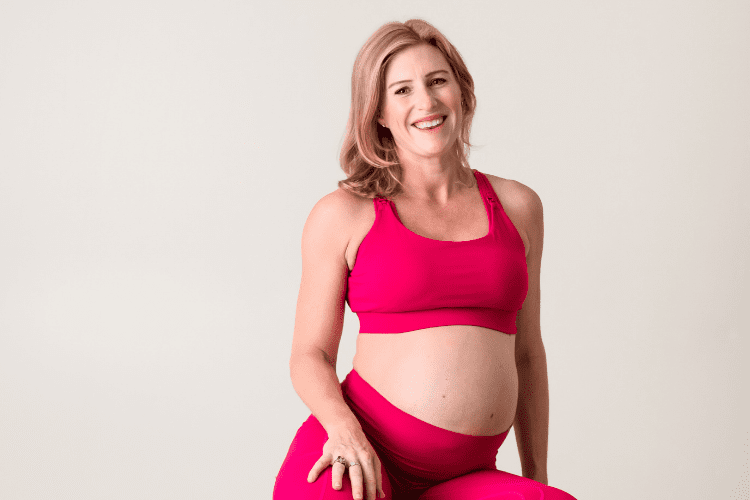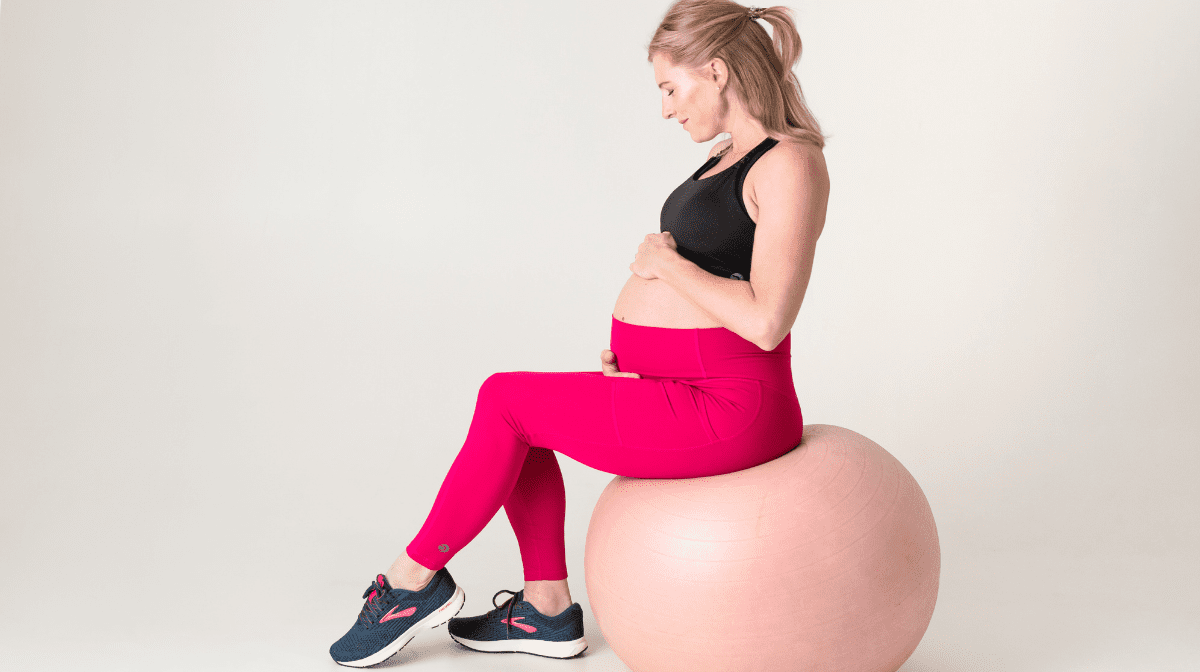
Maintaining a regular exercise routine during your pregnancy can help you feel your best, Mama! We spoke to Rosie Stockley, founder of the pregnancy fitness group Mamawell, to create your ultimate guide on how to keep yourself fit and healthy during pregnancy.
From regulating your hormones to improving your mood and sleep, keep scrolling to find out how to keep yourself fit during pregnancy and beyond so that you can feel happy and energised...
1. Firstly, Can You Tell Us A Bit About Mamawell And The MAMAWELL Method?
Mamawell is all about providing women with knowledge and support through their pregnancy and beyond so that they can utilise movement to their advantage - both mentally and physically. The Mamawell community on Instagram also provides support from expert guests on a wide range of women's health and wellness topics, live workouts and advice.The Mamawell Method comprises two workout programmes - one for pregnancy & one for postpartum. The workouts encourage women to stay strong and fit, learn what's happening in their bodies at this time and find energy for their busy lives as women and mothers.
2. Is It Safe To Exercise During Pregnancy?
In a nutshell, yes! In a normal 'uncomplicated' pregnancy, exercise is so beneficial and won't harm the baby or mother.
3. What Are The Benefits Of Exercise During Pregnancy?
There are a number of benefits of working out during pregnancy including:- Reducing the risk of gestational diabetes
- Increasing energy
- Better sleep
- Keeping blood pressure level
- Improving mood
- Regulating hormones
- Reducing risk of constipation
- Reducing risk of back pain
Exercise can also help reduce the risk of complications during pregnancy and childbirth, plus it can help speed up recovery times post-birth. Staying strong and cardiovascularly fit is also helpful for supporting the body as it changes, helping to provide endurance for the birth and afterwards, when the real hard work begins.
4. What Are Your Top Tips On How To Keep Yourself Fit And Healthy During Pregnancy?
My advice would be to listen to your body. It sounds a bit vague, but how you feel doing moves changes each week in pregnancy so you just want to follow your own journey. In general, the first trimester is usually considered the most 'risky' so you want to be happy and confident with everything you're doing fitness-wise. You don't want to look back and wish you hadn't done a certain class.Physically not much has changed on the outside, but there are many hormonal adaptations as the baby begins to grow. This results in fatigue and often women feel nauseous, so make sure you honour how your body is feeling and rest where needed. Once you are in the second trimester your energy levels often return and it’s a great time to get into a regular fitness routine.
Don't push through any workouts, instead, notice when you're feeling really good and stick with that intensity. Additionally, notice the days where you're lower in energy and honour that. Maybe just go for a walk instead.Get in a great habit of doing your pelvic floor exercises, as it's so important to support this muscle through pregnancy and after birth.
Aim to drink lots of water and keep your blood sugar levels regulated by eating regularly. Aim for a well-balanced diet with lots of fresh fruit and vegetables, high-quality protein and fibre, less-processed carbs, and not too much sugar. Your body is working hard growing the baby, so keep yourself well-nourished with nutritious food.5. What Are The Best Exercises To Stay Fit During Pregnancy?
I really would recommend doing what you love and know that your body is going to respond well to it! Ideally if it can incorporate some cardiovascular and resistance training work, then great.
Having a baby requires you to be strong, so if resistance training is part of your workout then you should definitely keep doing it. Avoid straining and holding the breath, for example when lifting heavy weights. Reduce the weight a little and do increased reps as an alternative. Be very mindful of your form when lifting weights as you have an altered centre of gravity with the bump growing.
Cardio exercise is fine to do when you’re pregnant, but be mindful of your energy levels and adjust the intensity as necessary. Always take a break if you feel lightheaded, and make sure you drink plenty of water throughout all of your workouts.

Follow Rosie on Instagram @mamawelluk
As well as your normal routine, you might want to join a specialist class. For example, pregnancy yoga to help get you focused on your body and how it can help you in the birthing process.
Understanding the body’s needs during pregnancy is paramount, and many people find they become so much more in tune at this time. Some movements or classes may suddenly feel less than great on your body, take that as a sign to step back and give them a rest. If you feel energised then there is no reason why you can’t exercise every day, but if your body is crying out for a break then you should absolutely honour that.The NHS recommends 150 minutes of moderate exercise per week throughout pregnancy, and this doesn’t have to be in big hour long workouts - every little 15 minutes throughout the day adds up. So keeping active where you can, little and often is also great.
6. Are There Any Exercises You Should Avoid During Pregnancy?
In general, avoid any new types of exercise as you want to be confident with your form and how your body reacts to each movement.
Avoid extreme core work and notice if what you’re doing doesn’t feel great on your body. You are often your best judge of what feels right, and there are plenty of options for every muscle group. Crunches and planks are not advised in pregnancy, instead focus on utilising your core in other full-body movements so that it is functional as well as strong.
Pregnancy isn’t a time to exercise to lose weight, but it can still be a time to focus on maintaining fitness levels and lean muscle strength. Childbirth is physically demanding, so preparing for that, if you’re able, is good! Aim to maintain rather than increase muscle, and maintain weight rather than lose it.7. Should You Still Be Exercising In The Third Trimester Of Pregnancy?
For sure, if you're feeling good! You may need to slightly adapt your workouts though. Mainly physically as the bump grows, it may get in your way in some movements. In addition, your lung capacity will be reduced so you may notice yourself getting more out of breath, so take longer breaks where needed.As the pregnancy goes on, you may notice that you want to stop certain workouts and maybe go a little less intense. You might be more tired, so just make adaptations as needed.
8. How Long Should You Wait To Start Exercising Again Post-Pregnancy?
A minimum of 6-weeks for exercise is advised, and 12-weeks for running. It's best not to rush, but instead focus on the foundations. Build up strength from within in the pelvis and abdomen before doing anything too intense.
From a few days post birth you can do pelvic floor exercises every day, then add in a few gentle abdominal activations with breath in the weeks following. Walking is fine to do as soon as you're ready, and is a great way to get moving again in a way that's good for body and mind.
The Mamawell Method is available for £7.99 a month and incorporates pregnancy and postpartum cardio and strength workouts with lots of additional information on how to work the core, stretch and find energy at this intense time of your life!
Your Post-Workout Pregnancy Bodycare Routine
Is your due date fast approaching, Mama? Discover the benefits of a perineal massage and how they could help you avoid tearing during labour here.
Is your due date fast approaching, Mama? Discover the benefits of a perineal massage and how they could help you avoid tearing here.









